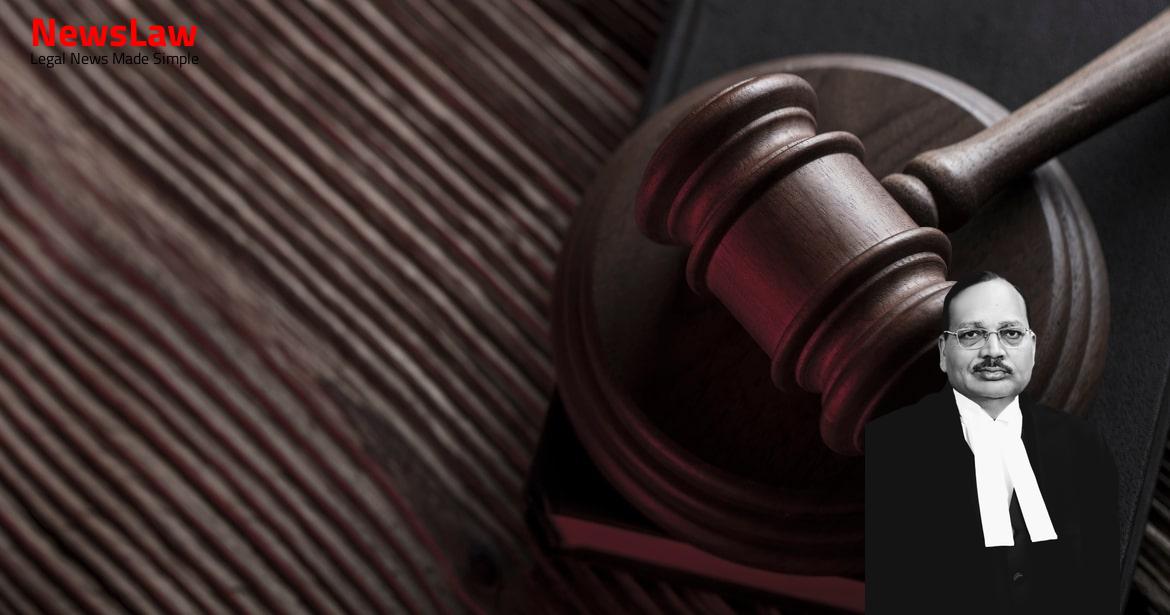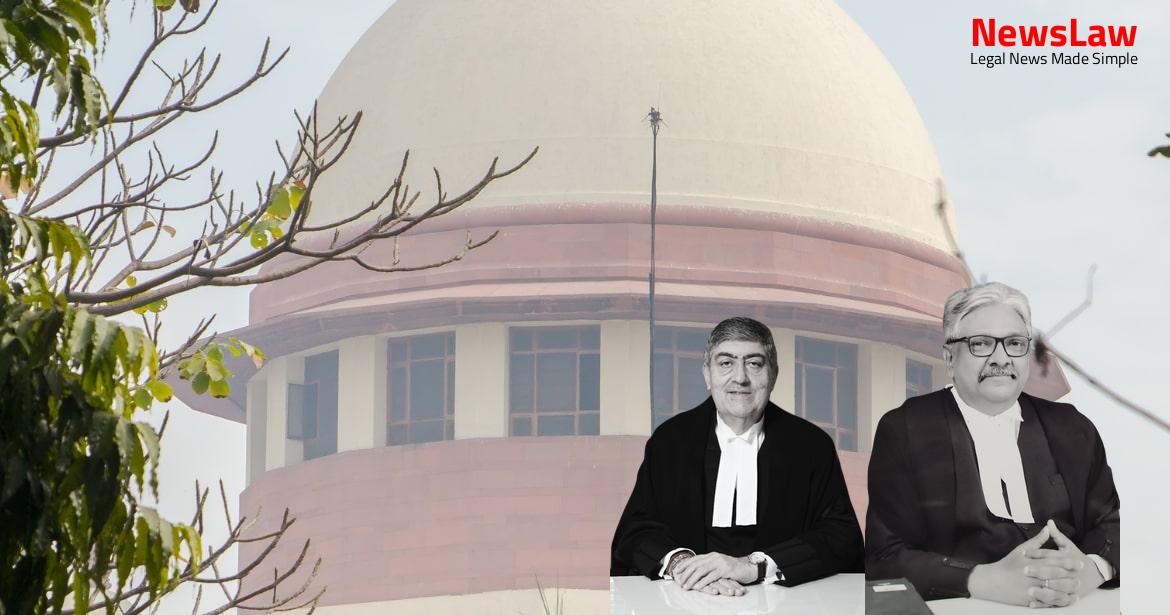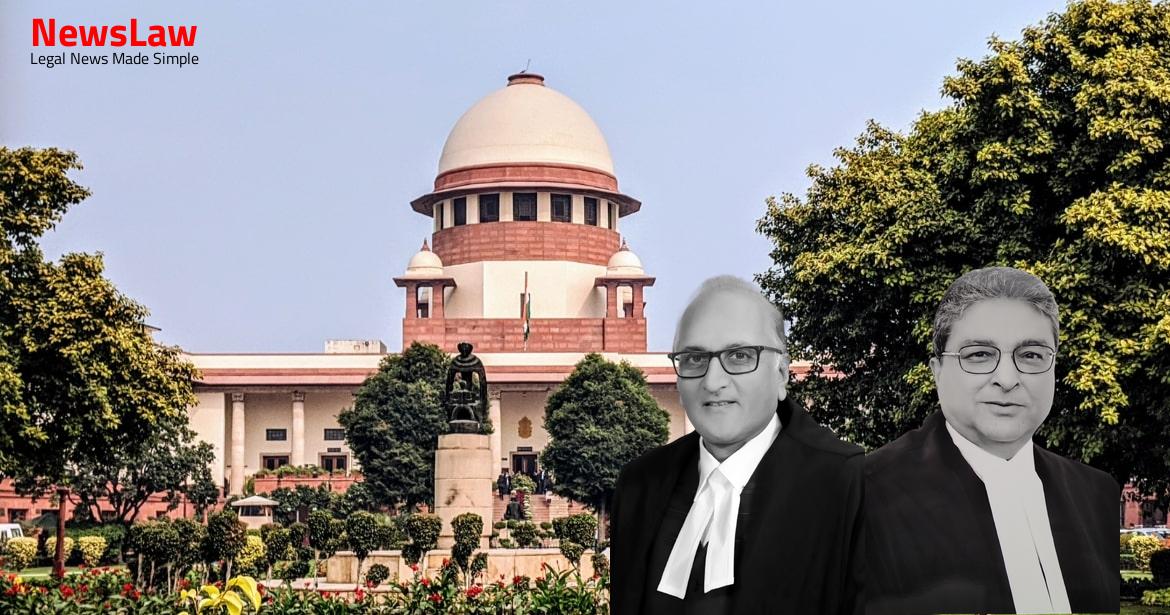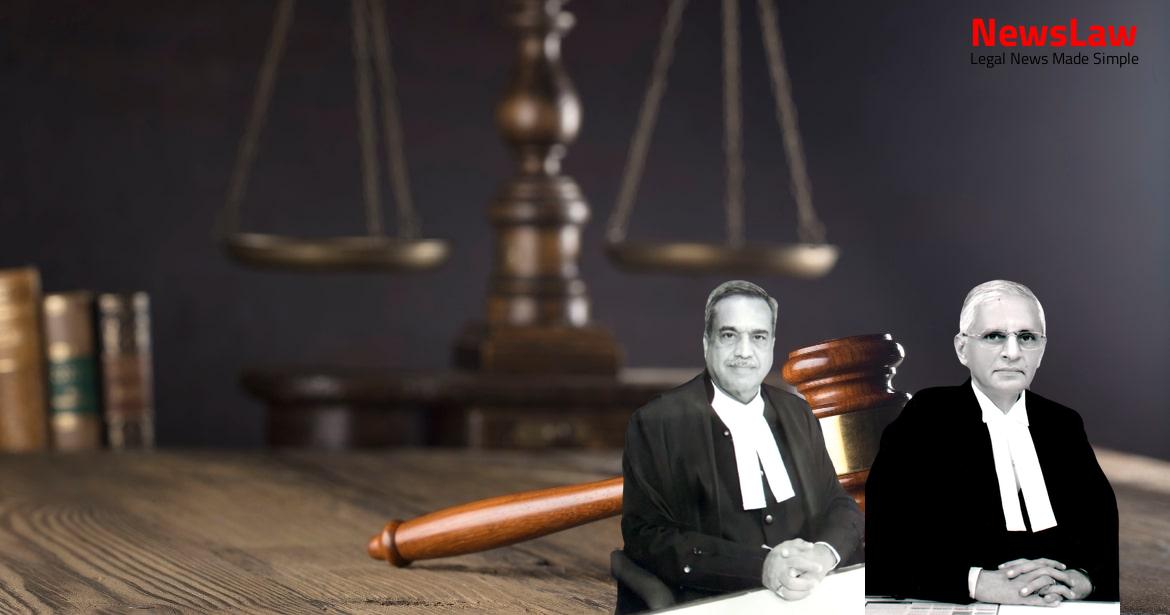Explore the depths of a criminal revision case where the court’s legal analysis takes center stage. Amidst jurisdictional challenges and assessments of legal principles, the High Court’s role is dissected to prevent abuse of process and secure justice. Delve into the complexities of court jurisdiction and the nuances of legal proceedings in this intriguing legal saga.
Facts
- The CJM took cognizance of the matter on 08.11.2012.
- Leave was granted for the Special Leave Petition.
- The appeal challenges the judgment of the High Court at Allahabad on a criminal revision against the CJM’s order.
- The appellant was not discharged in N.C.R. No.120/2012 under IPC Sections 504 and 506.
- The Investigating Officer did not consider the appellant’s version in the case.
- Mohd. Sharif Khan and Umesh Kumar Bhatt were introduced as witnesses in the respondent’s statement.
- A charge sheet was filed against the appellant on 21.07.2012 based on the complainant’s statement and two witnesses’ affidavits.
- The complainant, Respondent No.2, alleged that the appellant threatened him with life-threatening calls during an investigation for malpractices in a gas agency.
- An application for investigation was filed under Section 155(2) Cr.P.C, and the police were directed to submit a report.
- The appellant sought discharge under Section 239 Cr.P.C before charges were framed, claiming false implication and lack of offense under IPC Sections 504 and 506.
- The CJM did not agree with the appellant’s plea and rejected his discharge application.
- No affidavit or documentary evidence was filed by the applicant in support of the discharge application.
- The determination of whether the applicant used abusive and threatening language is a matter of evidence that cannot be decided at this stage.
- Sufficient oral and documentary evidence exists on record to frame charges against the accused.
- The CJM found the application filed by the applicant to be not maintainable at that stage and rejected it.
- The Criminal Revision Petition filed by the appellant was dismissed as no jurisdictional error was found in the CJM’s order.
Also Read: Analysis of Suppression of Information in Employment Selection: Legal Perspective
Arguments
- The appellant’s counsel argued that the complainant’s story seems dubious prima facie, as he initiated the phone call, put it on speaker, and had witnesses ready.
- No call records were requested by the police, and affidavits of witnesses were blindly accepted without recording their statements under Section 161 of CrPC.
- The Investigating Officer allegedly overlooked the criminal record of the complainant, who was involved in seven criminal cases.
- A letter from ‘The Pioneer’ Resident Editor indicated that the complainant was not employed with them during the alleged incident.
- The State Counsel contended that the allegations constitute a clear case under Sections 504 and 506 of IPC, and no errors were made by the High Court or CJM.
Also Read: Analysis of Cheating and Forgery in Passport Case
Analysis
- The High Court failed to assess whether the continuation of proceedings would amount to an abuse of process.
- The High Court did not delve into the merits of the case or apply established legal principles.
- Interference by the court may be necessary in exceptional cases to prevent serious prejudice to a citizen’s rights.
- The High Court’s failure to entertain the revision petition on its merits is a jurisdictional error.
- The nature of the petition filed by the aggrieved party should not affect the court’s consideration.
- The High Court incorrectly dismissed the Criminal Revision petition citing lack of jurisdiction under Section 397 of Cr.P.C.
- The court has the discretion to order further investigation in appropriate cases for effective administration of justice.
- Revisional jurisdiction of the High Court can be used to challenge orders taking cognizance, issuing processes, or framing charges on jurisdictional grounds.
- The High Court’s jurisdiction should ensure expeditious trial disposal without hampering the process.
- An order framing charge is not purely interlocutory and can be challenged in exceptional situations.
- High Courts have inherent power to interfere with orders framing charges to prevent abuse of process or secure the ends of justice.
- The trial court must assess evidence to determine if there are sufficient grounds to try the suspect when considering a discharge application.
- Orders framing charges or refusing discharge are neither purely interlocutory nor final, and are not affected by the bar of Section 397(2) of CrPC.
- The High Court has inherent jurisdiction to prevent abuse of process or secure the ends of justice based on specific case circumstances.
- The High Court should be cautious when exercising its jurisdiction to prevent abuse of process or secure the ends of justice.
- The High Court and the court below did not assess the fairness of the criminal investigation in the case
- Related aspects such as improvement of witness statements were not examined
- The High Court needs to reevaluate the entire matter and decide the revision petition anew
Also Read: Discrepancy in Date of Birth: Court’s Legal Analysis
Decision
- The impugned order dated 28.11.2018 has been set aside.
- The case has been remanded back to the High Court for reconsideration in accordance with the law.
- The appeal has been disposed of accordingly.
- All pending applications, if any, have also been disposed of.
Case Title: SANJAY KUMAR RAI Vs. THE STATE OF UTTAR PRADESH (2021 INSC 292)
Case Number: Crl.A. No.-000472-000472 / 2021



